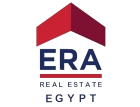Elevating Your Property Management Game: Proven Practices for Success
Understanding Property Management
Definition of Property Management
Property management refers to the operation, control, and oversight of real estate properties on behalf of the owners. This can encompass residential, commercial, or industrial properties. A property management agency acts as the intermediary between landlords and tenants, ensuring that the property is maintained, rents are collected, and tenant needs are met. The services provided by a property management agency are crucial in maximizing the value and efficiency of a property.

Importance of Efficient Property Management
Efficient property management plays a pivotal role in the success of any real estate investment. Here are a few reasons why it matters:
- Maximized Return on Investment (ROI): By adeptly managing properties, owners can maximize their investment returns. This includes setting competitive rental prices and reducing vacancy rates.
- Property Maintenance: Regular upkeep and timely repairs help preserve property value. For instance, a well-maintained property not only attracts potential tenants but also keeps current ones content.
- Tenant Satisfaction: Effective communication and swift response to tenant concerns foster good relationships. Happy tenants are more likely to renew leases, reducing turnover costs.
- Legal Compliance: A property management company stays abreast of landlord-tenant laws, ensuring compliance to avoid costly legal issues.
In essence, understanding property management clarifies its role in maintaining and enhancing the value of real estate while meeting the needs of all stakeholders involved.
Key Responsibilities in Property Management
Rent Collection and Financial Management
One of the most critical responsibilities of a property management company is rent collection and financial management. This task requires not only diligence but also a systematic approach to ensure timely payment from tenants. A property services agency often implements the following strategies:
- Setting Clear Payment Terms: Clearly outlining payment deadlines in leases helps avoid confusion.
- Flexible Payment Options: Offering online payment options can ease the process for tenants, resulting in timely rent collection.
- Regular Financial Reporting: Providing owners with monthly financial statements allows transparency and informed decision-making.
Maintenance and Repairs
Regular maintenance and prompt repairs are essential for preserving property value. An adept property management company prioritizes these duties by:
- Scheduled Inspections: Regular checks can catch potential issues before they escalate into costly repairs.
- Quick Response to Repairs: Having a reliable network of contractors ensures that repairs are fixed quickly and efficiently. For instance, a leaky faucet may seem minor, but if unattended, it can lead to serious water damage.
- Budgeting for Maintenance: Allocating a portion of the budget to a maintenance reserve can assist in handling emergency repairs without financial strain.
Tenant Relations and Communication
Building strong tenant relations is vital for successful property management. Excellent communication goes a long way in retaining tenants and fostering a positive living environment. Key tactics include:
- Regular Updates: Keeping tenants informed about property updates or maintenance schedules can create trust.
- Feedback Channels: Implementing suggestions boxes or surveys encourages tenants to voice their concerns.
- Conflict Resolution: Promptly addressing disputes can prevent issues from escalating, ensuring a harmonious community.
Through effective handling of these responsibilities, property management companies in Egypt and beyond can enhance the living experience for tenants while also protecting owners’ investments.
Technology Integration in Property Management
Benefits of Property Management Software
In today’s fast-paced world, integrating technology into property management has become essential for efficiency and effectiveness. Property management software offers a plethora of benefits that can significantly enhance operations. For instance, these platforms allow property management companies to:
- Centralize Information: Important documents, tenant records, and financial data can be stored in one accessible location, making retrieval easy and quick.
- Simplify Communication: Many software options include built-in messaging systems, allowing managers to communicate promptly with tenants about maintenance requests or payment reminders.
- Streamline Accounting: Automated financial tracking helps in generating accurate monthly statements, making it easier to oversee cash flow.
For example, a property management agency utilizing software could reduce the time spent on manual rent collection by over 50%, allowing them to focus on more strategic tasks.
Automation for Streamlined Processes
Automation is another game-changer in property management, allowing for more streamlined processes. By automating repetitive tasks, property management companies can free up valuable time. Here are a few examples:
- Automated Rent Reminders: Sending automatic reminders to tenants helps ensure timely payments, which is crucial for maintaining positive cash flow.
- Maintenance Management: Automating maintenance requests through online portals allows tenants to submit issues directly, and managers can assign tasks to maintenance staff effectively.
- Reporting and Analytics: Automated data collection and reporting tools can provide insights into occupancy rates, revenue streams, and maintenance costs, enabling informed decision-making.
By leveraging these technological advancements, property management companies can not only enhance their operational efficiency but also significantly improve tenant satisfaction, bridging the gap between landlords and residents seamlessly.

Marketing Strategies for Property Management
Effective Online Listings
In a digitally-driven world, having effective online listings is crucial for property managers. Accurate and enticing listings can significantly increase tenant interest. When creating these listings, managers should focus on:
- High-Quality Photos: Clear, professional images showing each room from various angles can attract potential tenants. A personal experience shared by a property manager revealed that well-staged photos resulted in a 40% increase in inquiries.
- Detailed Descriptions: Highlighting key features such as amenities, nearby attractions, and unique aspects of the property can make a listing stand out.
- SEO Optimization: Utilizing keywords related to property management and local amenities can help increase visibility in search engines.
Social Media Engagement
Social media is an invaluable tool for connecting with current and prospective tenants. Engaging with audiences on platforms like Facebook, Instagram, and LinkedIn allows property management companies to:
- Showcase Properties: Regularly posting updates and photos of available units keeps the audience informed.
- Host Virtual Tours: Live-streaming or creating video tours can offer potential tenants a unique perspective of the property without physical visits.
- Build Community: Sharing tips for renters, local events, or community news fosters a sense of connection and increases engagement.
Reputation Management
Maintaining a positive online reputation is essential in property management. Actively managing reviews and feedback can influence potential tenants’ decisions. Here are effective strategies for reputation management:
- Encouraging Reviews: Ask satisfied tenants to leave positive reviews on sites like Google and Yelp. A study found that properties with higher ratings attract more inquiries.
- Responding to Feedback: Addressing complaints calmly and professionally shows prospective tenants that the management cares about tenant satisfaction.
- Showcasing Success Stories: Sharing testimonials and positive experiences can build trust and credibility.
By implementing these marketing strategies, property management companies can enhance their visibility, engage effectively with tenants, and ultimately grow their leasing success.
Legal Compliance and Risk Management
Understanding Landlord-Tenant Laws
Navigating the maze of landlord-tenant laws is crucial for any property management company. These laws vary significantly by location and can cover everything from security deposits to eviction procedures. A well-informed property manager not only protects the interests of the property owner but also ensures fair treatment for tenants. Here are essential points to consider:
- Lease Agreements: Clear, concise lease agreements should outline the rights and responsibilities of both parties, including rent payment deadlines and maintenance obligations.
- Security Deposits: Familiarity with regulations surrounding security deposits, including legal limits and return timelines, is essential to avoid disputes.
- Fair Housing Practices: Adhering to fair housing laws prevents discrimination against potential tenants, promoting inclusive properties.
A property manager once found themselves in a costly legal battle simply due to neglecting tenant screening laws, highlighting the importance of compliance.
Insurance Policies for Property Management
On the other hand, insurance policies serve as a safety net, covering various risks associated with property management. Understanding the different types of insurance is crucial for mitigating potential losses:
- General Liability Insurance: Protects against claims of bodily injury or property damage resulting from property management activities.
- Property Insurance: Covers damage to the physical structure due to fire, theft, or natural disasters.
- Professional Liability Insurance: Offers coverage in case of negligence or disputes arising from property management services.
By maintaining comprehensive insurance coverage and staying updated on landlord-tenant laws, property management companies can minimize risk and protect their clients’ investments. This proactive approach not only safeguards assets but also fosters trust and transparency with tenants, ensuring a harmonious living environment.
Financial Planning and Budgeting
Budget Creation and Monitoring
Effective financial planning and budgeting are vital components of property management. A well-crafted budget allows property management companies to allocate resources efficiently and anticipate future expenses. The budget creation process involves:
- Assessing Income Sources: This includes not just rental income but also potential ancillary revenue like fees for parking or laundry facilities.
- Identifying Operating Expenses: Regular costs such as maintenance, utilities, and property taxes should be factored in. A property manager once shared how detailed tracking of monthly expenses led to identifying unnecessary costs, ultimately saving thousands.
- Setting Aside Reserves: Allocating funds for unexpected repairs or emergencies is essential to ensure financial stability.
By monitoring the budget regularly, property managers can quickly identify trends and make necessary adjustments, ensuring that properties remain profitable.

Handling Delinquent Payments
Delinquent payments can pose a significant challenge in property management, impacting cash flow and property operations. To tackle this issue effectively, property managers can implement several strategies:
- Clear Communication: Establishing open lines of communication with tenants regarding payment deadlines and consequences can help minimize late payments.
- Flexible Payment Options: Offering various payment methods, such as online payments, can make transactions easier for tenants and prompt timely payments.
- Timely Follow-Ups: Automated reminders for upcoming or overdue payments can be an effective way to reduce delinquencies.
Additionally, creating a structured plan for addressing delinquencies, including possible late fees and eviction procedures, can mitigate risks. By proactively managing budgets and addressing payment issues promptly, property management companies can maintain their financial health and ensure long-term success.
Developing Strong Communication Skills
In property management, strong communication skills are indispensable. Interacting with tenants professionally builds trust and promotes a positive living environment. Here are some effective practices:
- Active Listening: Taking the time to listen attentively to tenant concerns can go a long way. A property manager recounts how simply acknowledging a tenant’s issue led to faster resolutions and increased tenant satisfaction.
- Clear Messaging: Using clear and straightforward language in all communications ensures that tenants understand policies, lease terms, and any necessary instructions.
- Timely Responses: Promptly addressing inquiries or complaints conveys respect for tenants’ time, reinforcing good relationships.
This professionalism not only helps in establishing mutual respect but also often results in higher tenant retention rates.
Conflict Resolution Strategies
Despite best efforts, conflicts may still arise in property management. Having effective conflict resolution strategies in place is crucial for maintaining harmony. Here’s how to handle disputes effectively:
- Stay Calm and Objective: Maintaining a composed demeanor allows for rational discussions without escalating the situation further.
- Identify Common Ground: Finding issues both parties agree on can provide a foundation for resolving disagreements.
- Offer Solutions: Proposing practical solutions rather than merely outlining problems shows tenants that management is committed to resolution.
For example, one property manager successfully diffused a heated situation about maintenance delays by providing a detailed timeline for repairs, transforming a potentially contentious situation into cooperation. By honing communication skills and employing effective conflict resolution strategies, property management companies can foster positive tenant relationships, leading to an overall successful property experience.
Sustainable Property Maintenance Practices
Green Initiatives for Property Management
Implementing sustainable practices in property management is not just a trend; it’s a responsibility. Green initiatives can significantly lower environmental impact and create healthier living spaces. Here are some key initiatives property managers can introduce:
- Sustainable Landscaping: Opting for native plant species requires less water and maintenance, benefiting the ecosystem. One property manager shared how shifting to xeriscaping not only reduced water bills by 30% but enhanced property aesthetics.
- Waste Reduction Programs: Encouraging recycling and composting can foster community involvement while minimizing landfill contributions.
- Eco-Friendly Products: Using non-toxic cleaning supplies and materials can create safer environments for tenants and reduce exposure to harmful chemicals.
These initiatives not only appeal to environmentally conscious renters but can also lead to long-term cost savings.
Energy-Efficient Upgrades
Investing in energy-efficient upgrades is another vital component of sustainable property maintenance. By enhancing the property’s energy efficiency, management can reduce operational costs significantly. Consider the following upgrades:
- LED Lighting: Switching to energy-efficient LED bulbs can cut energy costs by up to 80% compared to traditional lighting.
- Smart Thermostats: Installing smart thermostats allows for better temperature control, optimizing heating and cooling patterns based on occupancy.
- High-Efficiency Appliances: Replacing old appliances with ENERGY STAR-rated models not only lowers energy consumption but also attracts energy-conscious tenants.
A property manager recounted a renovation project where these upgrades not only slashed energy costs but also increased property value and tenant satisfaction. Embracing sustainable maintenance practices fosters a healthier environment and positions property management companies as forward-thinking leaders in their communities.
Crisis Management and Emergency Preparedness
Creating Emergency Response Plans
In the unpredictable world of property management, having a robust emergency response plan is essential for safeguarding both tenants and property. An effective plan outlines procedures for various emergencies, ensuring a prompt and organized response. Here’s how to create a comprehensive plan:
- Identify Risks: Assess potential emergencies such as natural disasters, fires, or utility failures. A property manager once conducted a risk assessment that highlighted vulnerabilities, enabling proactive measures.
- Establish Protocols: Outline clear steps for tenants and staff to follow in an emergency. For example, detailing evacuation routes and communication channels can save valuable time during a crisis.
- Training and Drills: Regularly conducting training sessions and emergency drills ensures everyone knows their roles and responsibilities during actual emergencies.
By preparing in advance, property management companies can minimize chaos and protect their tenants’ safety.

Handling Unexpected Situations
Despite the best preparation, unexpected situations can arise. Being equipped to handle these moments is vital for effective crisis management. Here are practical strategies:
- Stay Calm and Composed: Maintaining a level head during crises is contagious and can help mitigate panic among tenants.
- Open Communication: Keeping tenants informed about the situation fosters transparency and trust. Utilizing text alerts or emails can provide timely updates during emergencies.
- Flexibility and Adaptation: Being open to adjusting plans as new information becomes available can lead to better outcomes. A property manager recalled a situation where a sudden plumbing failure required quick thinking and collaboration with local services for a speedy resolution.
Having a well-thought-out emergency response plan and being prepared for unexpected events ensures that property management companies can navigate crises effectively, prioritizing tenant safety and maintaining property integrity.
Continual Education and Professional Growth
Importance of Industry Training and Certifications
In the ever-evolving world of property management, continual education and professional growth are key to staying competitive. Pursuing industry training and certifications not only enhances knowledge but also contributes to career advancement. Here’s why this focus is critical:
- Updated Knowledge: The real estate sector often faces new laws, technologies, and market trends. Regular training helps property managers remain informed. One manager noted how a recent certification course equipped them with strategies to boost tenant satisfaction through improved amenities.
- Credibility: Certifications from reputable organizations build trust with clients and tenants, showcasing a commitment to professionalism. Such credentials can be a deciding factor when selecting a property management company.
- Skill Enhancement: Specialized training can provide specific skills, such as conflict resolution or financial management, that can translate into daily operations, improving efficiency.
Networking and Learning from Peers
Equally important is networking and learning from fellow professionals in the industry. Building connections can lead to numerous benefits:
- Sharing Best Practices: Engaging with peers at industry conferences or local meetups often leads to exchanging tips and strategies. A property manager once implemented a unique marketing strategy shared during a networking event that significantly improved their leasing rates.
- Support System: Academic interactions can create a sounding board for discussing challenges and solutions, fostering a community of support.
- Collaboration Opportunities: Networking can lead to potential partnerships on joint projects or services, expanding business opportunities.
By prioritizing ongoing education and establishing strong professional networks, property management professionals can enhance their skills, stay updated with industry trends, and ultimately provide superior service to their clients and tenants.


